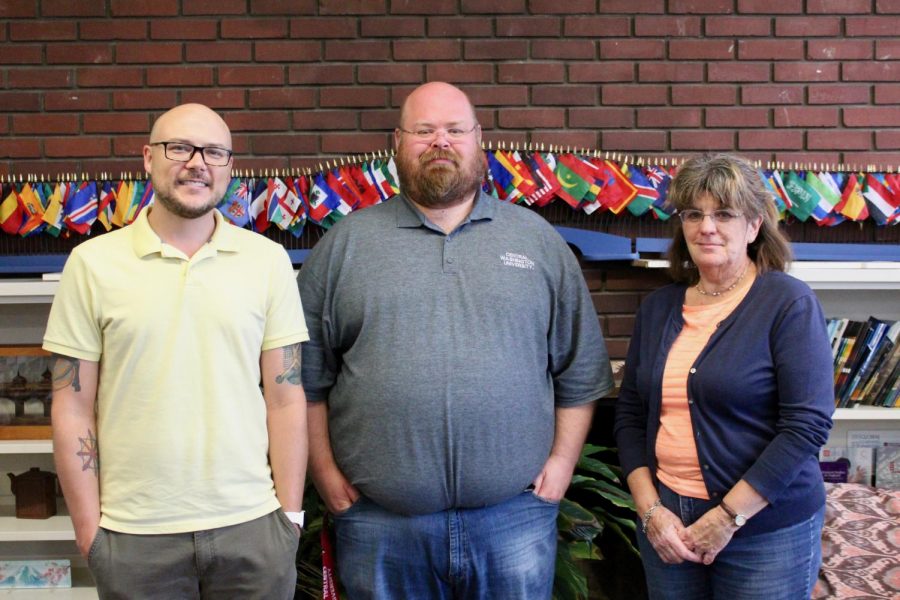Studying abroad expands student horizons
May 22, 2019
Whether it’s studying European history in London, or perfecting the Japanese language in Japan, the CWU Study Abroad and Exchange Program (SAEP) has something for virtually any student.
According to CWU’s Associate Director of Education Abroad Steve Cook, CWU has 10 different exchange program partners in different countries. Some of these countries are the U.K., Australia, France, South Korea and Japan, among others. Cook said that students can visit countries outside of the options that CWU provides, and there are hundreds of different programs they can choose from. Cook said sometimes students are unable to find a study abroad program that fits their major, but they can also find internships or practicums abroad.
A notable practicum option that Cook talked about was the Macau practicum that is held by the education department. Students who are in the college of education have the opportunity to go to southern China and do a practicum course in that country for a quarter. Cook said there are two more sessions being planned in the college of education department, one in Japan and one in Belize.
Preparing oneself for SAEP begins pretty early on, according to Cook. The student has to ensure they are talking to their academic advisors about what their academic goals are. They also need to stay in contact with financial aid and do research on the country they will be studying in. Cook said the SAEP department puts on pre-departure sessions where students meet with the department for a few hours, ask any questions they may have, get advice from student ambassadors and get any pre-departure jitters out.
Alex Kane, a senior and education abroad student ambassador, said budgeting for the trip is important. Students can not work while studying abroad because the student visa does not allow for that. What students have when they leave the U.S. is essentially the money they will have for their whole time there.
Kane studied abroad in France in 2017. She studied French, which is her major. Kane said she was there for four months, or a whole semester. According to Cook, most universities in the world are on a semester basis, and the quarter system is mainly an American concept.
“It was a really good cultural experience,” Kane said. “It opened my eyes to [France’s] perspective on Americans.”
Kane said that when she was in France, many locals wanted to know her political views. She said people seemed really up to date on world politics, whereas in America it is not typical to know much about the politics of other countries.
Kane and her family are originally from England and they came to the U.S. when Kane was in high school, so at the time of her abroad studies, Kane was not a U.S. citizen. She said that a lot of the time she pretended to not be from the U.S. at all. Kane said blending into the culture of the country in which a student is studying abroad is more important than one would think. One way to do that is to dress like people of the culture. Showing respect for the way people live will help gain respect from those in that country, Kane said.
Lianna Johnson, CWU graduate assistant at the International Center, went abroad twice in her undergraduate career. She went to London and Scotland respectively, focusing her education on history. Johnson talked about how much personal growth she went through while she studied abroad, and while the education she got was also a huge perk, she felt as though she gained independence she had never had before. Johnson was able to travel from one European country to the next while she was abroad, and she said being able to do that gave her a sense of confidence.
Both Johnson and Kane discussed the signs of culture shock, and gave some tips on how to ensure that culture shock does not ruin the students’ time abroad. Culture shock is the post “honeymoon phase” of studying abroad, according to Johnson. The once enchanting qualities of the new place and school subside, and the student begins feeling irritated towards the country itself. An inability to communicate with others gets frustrating, and so does trying to navigate a completely different world, Kane said. Johnson said some of the best ways for her to get over her homesickness and culture shock was to indulge in things from home.
Watching American TV, talking to a flat mate that is also American or calling home are a few ways someone can help combat homesickness.
Overall Johnson and Kane agreed that they are much different people because of SAEP, and for them, stepping out of their comfort zone every once in a while shaped them into the adults they are now.


